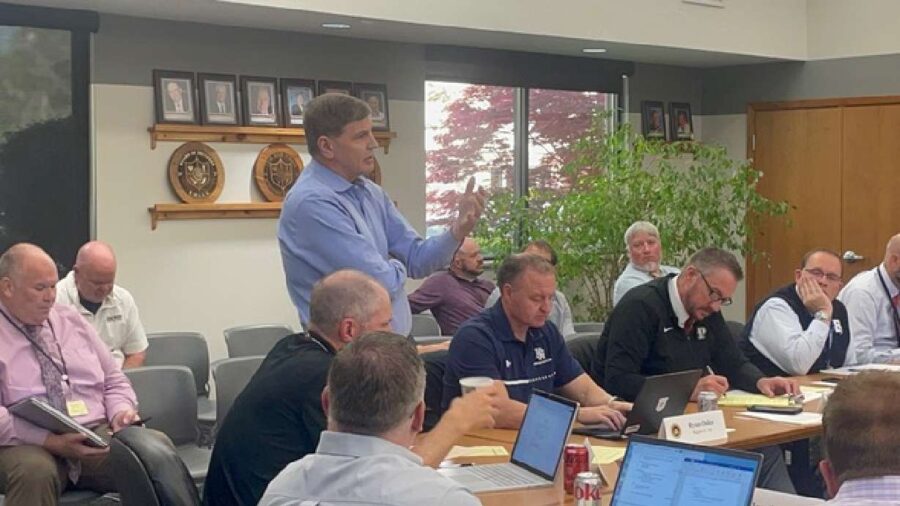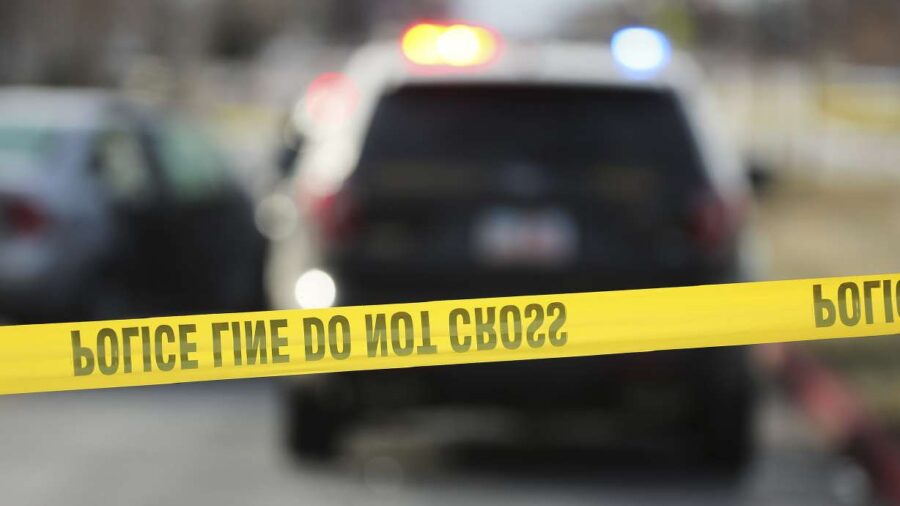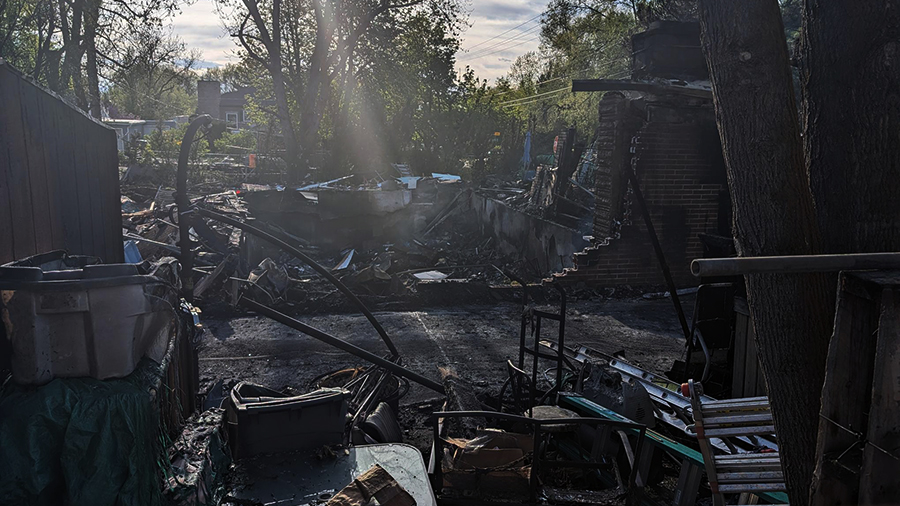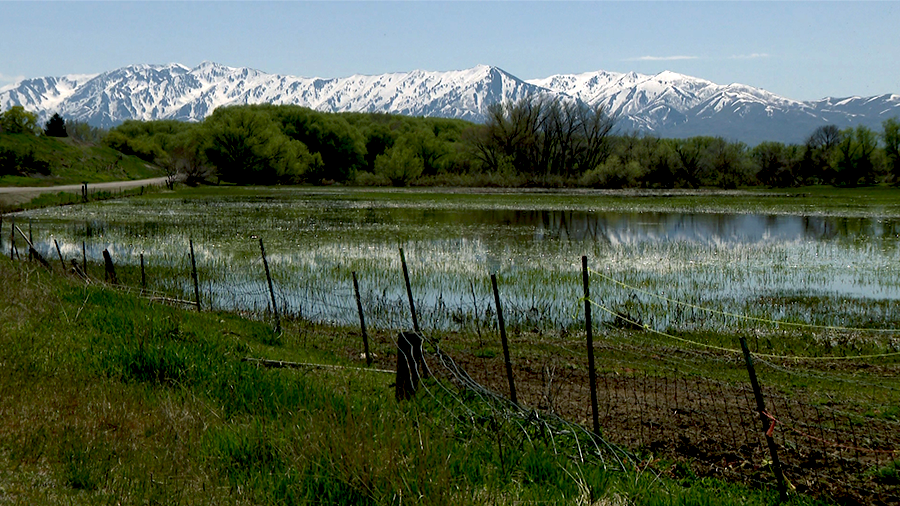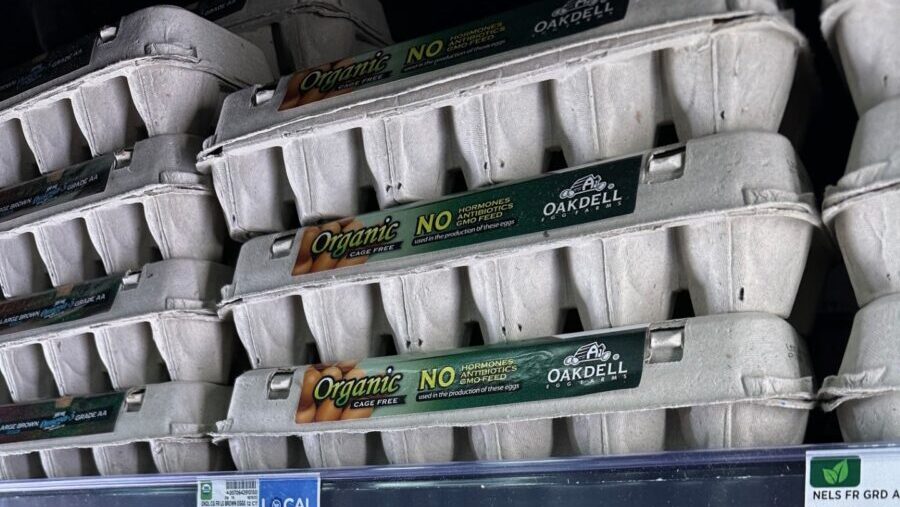Utah mule deer tests positive for COVID-19
Mar 28, 2022, 1:55 PM | Updated: 1:57 pm
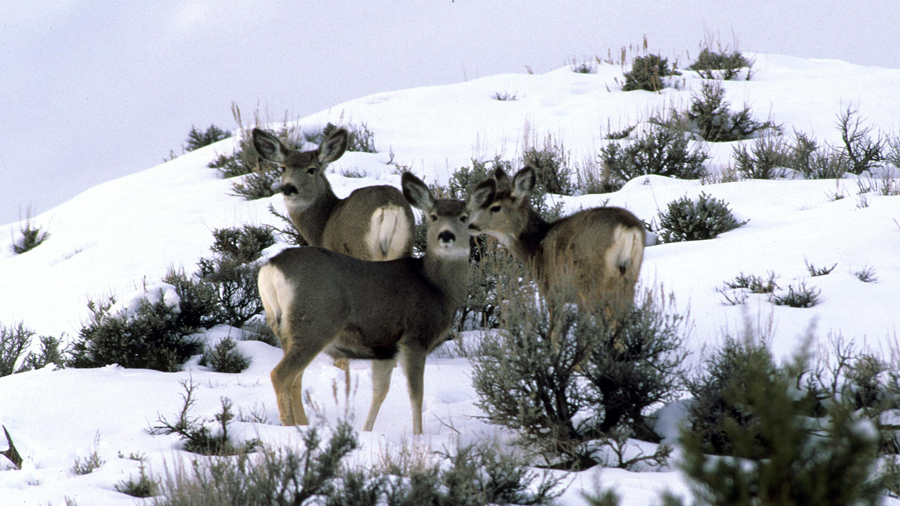
Mule deer in winter (Utah Division of Wildlife Resources)
(Utah Division of Wildlife Resources)
SALT LAKE CITY – The Utah Division of Wildlife Resources confirmed the state’s first positive test for COVID-19 in a mule deer.
Biologists tested the female deer in Morgan County during routine helicopter captures when biologists collected nasal swabs and blood samples. They also gave the animals health checks and place GPS collars on them.
DWR captures around 1,000 different animals during these helicopter missions which include moose, bison, deer, elk, bighorn sheep, and longhorn. November and December are when they capture the animals because they have migrated to lower elevations.
Biologists have confirmed COVID-19 in white-tailed deer in other parts of the country.
A news release from DRW said the U.S. Department of Agriculture Animal and Plant Health Inspection Service has been looking for COVID-19 in wildlife around the country.
That inspection service will do more research on the potential effects of SARS-CoV-2 in free-ranging mule deer in Utah and other Western states.
The Utah positive came from that program. DWR said it tested about 280 Utah deer but only one sample came back positive.
Several samples did show the presence of antibodies meaning the virus has been in the deer population.
“While it is confirmed that mule deer are susceptible to this virus, the deer that we took samples from did not show any clinical signs of the illness, and there isn’t any evidence that it is killing mule deer,” DWR State Veterinarian Ginger Stout said. “There is also no evidence that animals, including mule deer, are playing a significant role in spreading SARS-CoV-2 to people, and the available research suggests that the likelihood of getting COVID-19 from an animal is quite low.”
It’s not known for certain how the deer was exposed to COVID-19 but DWR said possibilities include human contact, other deer, or another species.
There is no evidence that people can get COVID-19 by eating an infected animal but DWR cautioned hunters to take the following precautions while harvesting wildlife.
- Don’t allow contact between wildlife and domestic animals, including pets and hunting dogs.
- Do not harvest animals that appear sick or are found already dead.
- Keep game meat clean and cool the meat down as soon as possible after harvesting the animal.
- Avoid cutting through the animal’s backbone and spinal tissues, and do not eat the brains of wildlife.
- When handling and cleaning game meat, wear rubber or disposable gloves. Don’t eat, drink or smoke while handling the meat.
- When you are finished handling and cleaning the meat, wash your hands thoroughly with soap and water.

